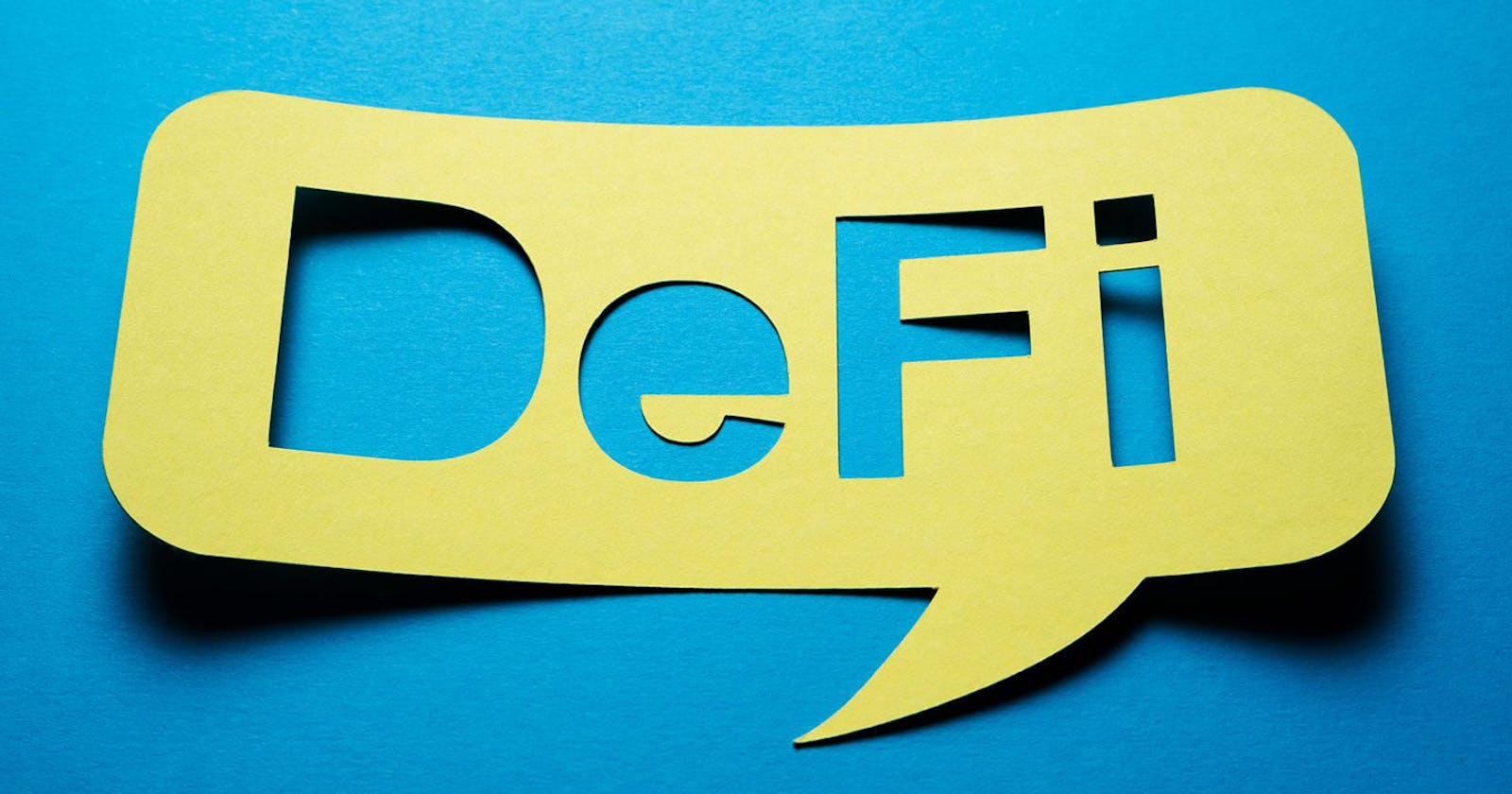Whether you’re new to crypto or you’ve dabbled in it, chances are you may have heard this term before 'DeFi' which is short for Decentralized Finance. It is one of the key buzzwords that goes alongside; Web 3.0 which is seen by many as the future of finance.
DeFi is just one key part in what makes up the Web 3.0 movement, Non-Fungible Tokens (NFTs) and the metaverse are the two other key aspects and they work together to allow you to be the creator, the steward, and the beneficiary of everything you do online to generate monetary value and data. So what exactly is Defi? And isn’t all of crypto a decentralized finance?
WHAT IS DECENTRALIZED FINANCE (DEFI)?
The broader concept of decentralized finance is the idea that blockchain technology and decentralization makes it possible to remove the intermediaries that are typically connected to traditional financial services there by empowering the individual user to take advantage of those services while cutting out the intermediaries. It allows investors to directly interact with each other on a peer-to-peer (P2P) basis by providing loans or liquidity for trading and assume those roles/functions in return for generating fees, but also carrying the risks. The users are able to interact using peer-to-peer (P2P) applications that are decentralised called “Dapps”.
Dapps are used by DeFi protocols or customers in order to interact which each other and are powered by ‘Smart Contracts’ which are programs that run like contracts when predetermined conditions are met and are stored on a blockchain. Smart Contracts are self-executing contracts with the terms of the agreement being directly written into lines of code, such that when the pre-agreed conditions are met, the smart contract enforces the performance of the relevant terms of the agreement. The code and the agreements contained in the contract exists on a blockchain network and the code controls the execution while the transactions are trackable and irreversible.
Although when compared to the traditional or centralised financial industry, DeFi is still a small drop in a big pond. However, DeFi products or protocols have started growing rapidly and are attaining monumental gains. The key services DeFi offers the world fit into four categories: borrowing, lending, liquidity pools, and staking. All of these services are managed using decentralized blockchains, crypto wallets, and smart contracts that define the rules of engagement and most importantly, No central authority required. Since DeFi cuts out the middleman, the extra capital that would normally go towards paying these middlemen goes to the end users and as crypto adoption accelerates, more and more traditional financial institutions are going to have to compete with the savings and returns that DeFi can offer.
Let me give an illustration with a DeFi product; A loan. David may be looking to get a loan and instead of going to a bank, he could decide to log on to a Dapp which compares and rates the different services on offer. Upon selecting one of the offers, David enters into a Smart Contract and accordingly, the Dapp stipulates the conditions required of him for disbursement of funds and once these conditions are fulfilled, the disbursement term of the Smart Contract is executed and the loan amount is disbursed to David (usually in cryptocurrency) instantly and parties are bound by the Smart Contract. This DeFi product (The loan) may be secured by a collateral which may be deposited in the account of a neutral third-party or on the native blockchain the Dapp is built on which is usually in the form of the cryptocurrency native to the blockchain. In some cases no collateral is needed at all.
THE DIFFERENCE BETWEEN DeFi AND CRYPTOCURRENCY
The difference between DeFi and cyrptocurrency is that; DeFi is a broader concept that suggests the idea of taking traditional financial services away from intermediaries and using blockchains and smart contracts to facilitate financial services transactions instead. Cryptocurrency refers to digital assets secured by cryptography that act as a medium of exchange.
In the case of DeFi, cryptocurrencies are the medium of exchange that transfers value across the protocol including to the users which means that you can have a cryptocurrency without DeFi, but you can’t have DeFi without a cryptocurrency.
Based on the above we can say that DeFi provides a service while cryptocurrency is the value capture mechanism for a given service or purpose. Both DeFi protocols and cryptocurrencies will likely play a big role in disrupting the world of traditional finance.

